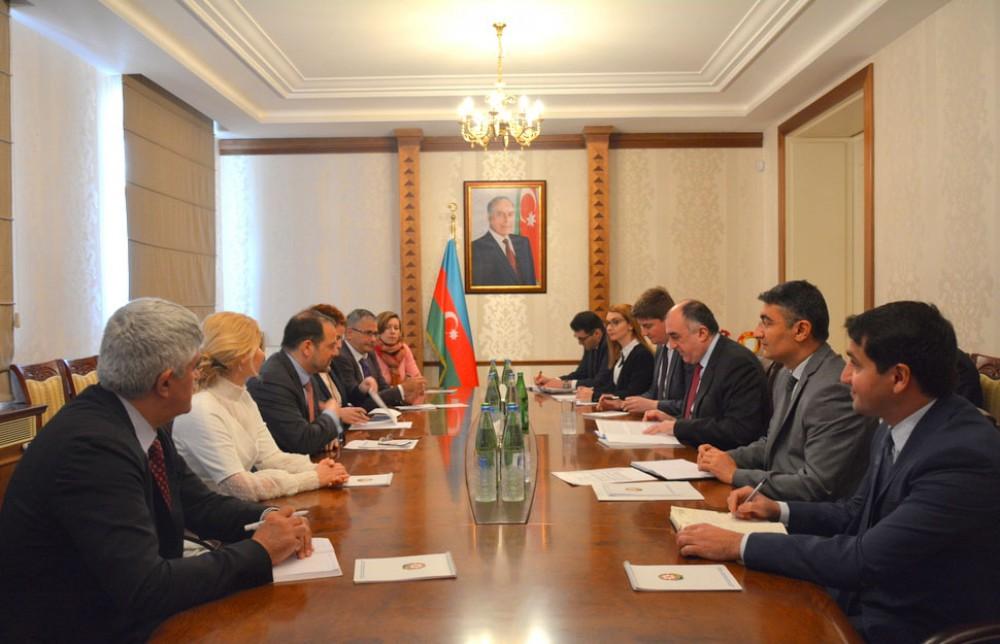Azerbaijan, EU intend to expand cooperation in trade, transport spheres

By Amina Nazarli
Azerbaijan`s Foreign Minister Elmar Mammadyarov met with Luc Devigne, the director for Russia, Eastern Partnership, Central Asia and OSCE of the European External Action Service.
The sides discussed the current state and prospects of cooperation between Azerbaijan and the European Union, as well as exchanged views on the negotiation process on Azerbaijan-EU partnership agreement.
Mammadyarov recalled a visit of President Ilham Aliyev to Brussels, and said that the meetings and the statements made within the visit provided solid ground for further development of the Azerbaijan-EU cooperation.
In turn, Devigne expressed his satisfaction on productive
meetings held in Baku on Draft Agreement. Talking about the way
forward, he said that the parties via meetings and video
conferences will continue discussions.
He also stressed that there are wide range of opportunities for
enhancing cooperation in the field of trade and transport between
EU and Azerbaijan.
The new agreement between EU and Azerbaijan should replace the 1996 partnership and cooperation agreement and should better take account of the shared objectives and challenges the EU and Azerbaijan face today.
The agreement will follow the principles endorsed in the 2015 review of the European Neighborhood Policy and offer a renewed basis for political dialogue and mutually beneficial cooperation between the EU and Azerbaijan.
The new agreement envisages the compliance of Azerbaijan’s legislation and procedures with the EU’s most important international trade norms and standards, which should lead to the improvement of Azerbaijani goods’ access to the EU markets.
Touching upon the Armenia-Azerbaijan Nagorno-Karabakh conflict, Mammadyarov stressed the importance of a holistic approach with respect to the resolution of protracted conflicts based on the principles of respecting to the territorial integrity and sovereignty of states within internationally recognized borders, as it is enshrined in the Global Strategy of EU.
The conflict between the two South Caucasus countries began in 1988 when Armenia made territorial claims against Azerbaijan. As a result of the ensuing war, in 1992 Armenian armed forces occupied 20 percent of Azerbaijan, including the Nagorno-Karabakh region and seven surrounding districts.
The 1994 ceasefire agreement was followed by peace negotiations. Armenia has not yet implemented four UN Security Council resolutions on withdrawal of its armed forces from the Nagorno-Karabakh and the surrounding regions.
-
Amina Nazarli is AzerNews’ staff journalist, follow her on
Twitter: @amina_nazarli
Follow us on Twitter @AzerNewsAz
